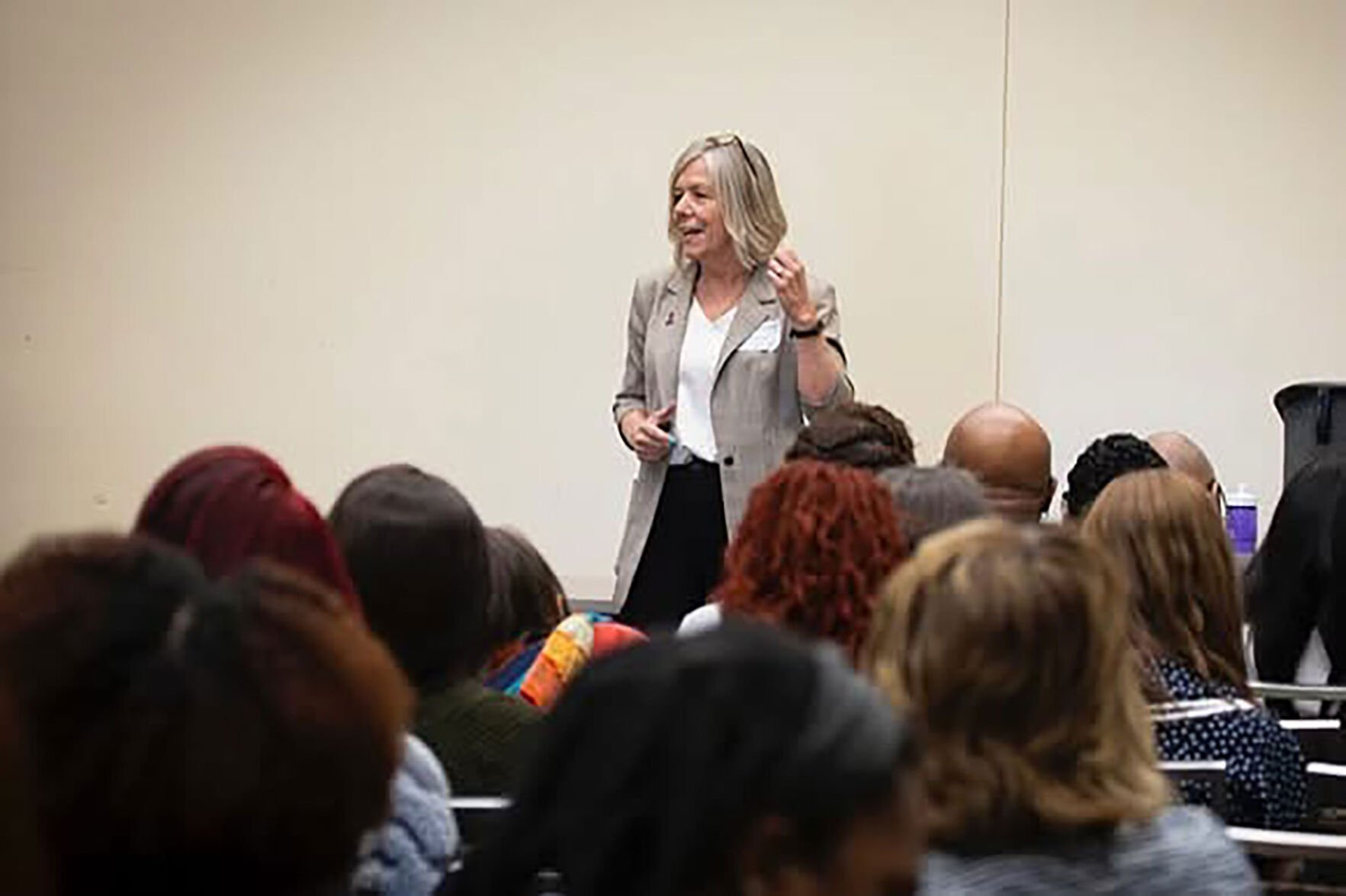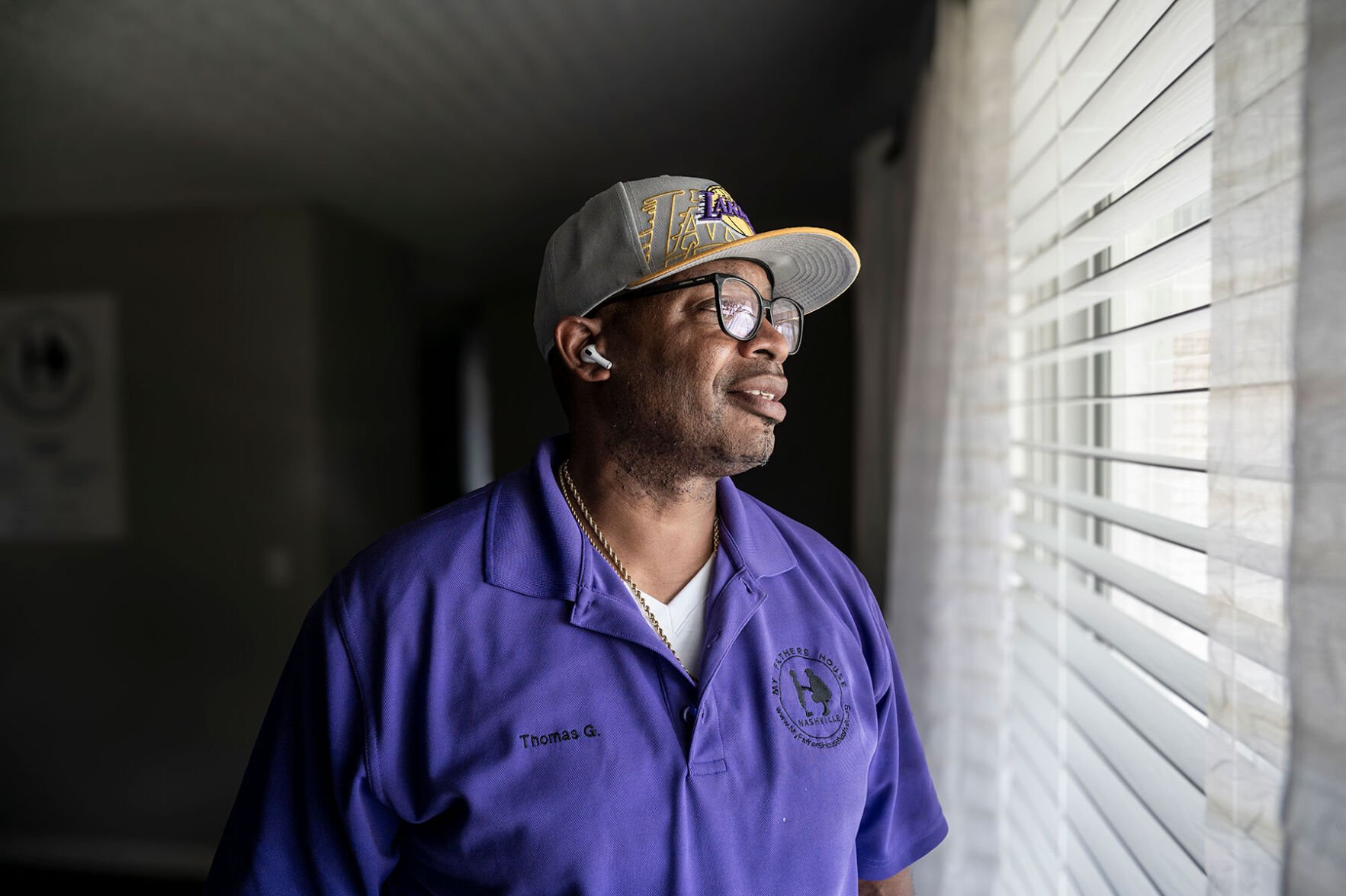Thomas Gooch can’t wait to buy a company vehicle for his nonprofit when the next round of opioid abatement funds comes through this winter.
With My Father’s House, Gooch runs recovery houses for men transitioning out of incarceration. Two of the locations aren’t on bus routes, and new funding means he’ll be able to hire an employee to shuttle them to the bus stop, take them to treatment and even pick up new residents from jail or prison.
The Tennessee Opioid Abatement Council recently announced its second round of awards, which fit into the categories of education, harm reduction, prevention, treatment, recovery support and/or research. Locally, child abuse prevention nonprofit Nashville Children’s Alliance was awarded $1.72 million, and homeless service provider Community Care Fellowship was awarded $3 million.
Thanks to opioid abatement funds, programs like Firefly and The Next Door Recovery share their successes
More than $50 billion in opioid abatement funds is currently being distributed in the country, including millions in Tennessee. The money comes from lawsuits against companies charged with fueling the opioid epidemic, including CVS, Walgreens, Kroger and drug companies Purdue Pharma and Johnson & Johnson, among others.
In Davidson County, there were 110 suspected overdose deaths during the second quarter of 2025, representing a 20 percent decline year over year. There were 530 deaths in 2024, compared to 700 in 2023, representing a 24 percent decrease overall. Nationally, overdose deaths decreased by nearly 27 percent in 2024 compared to 2023.
This funding is the first opioid abatement award for My Father’s House. Gooch founded the organization in 2013 after noticing a dearth of organizations to help formerly incarcerated fathers — many of the recovery programs he saw were aimed at mothers. My Father’s House will also use the $758,000 in funds to hire a caseworker and pay for the first two weeks of rent for 120 people who come through its locations’ doors.
The houses weren’t Gooch’s first foray into the recovery space. He was the first to work for the state’s syringe exchange program following its launch. He trained others statewide, using his experience at a formerly underground program at Street Works. Gooch brings lived experience to the operation as well: He got clean 22 years ago, he tells the Scene.
“If you went through that or something similar, it’s easy for you to know that they’re scared to move,” Gooch says of My Father’s House residents. “They’ve got doubt that they can change. They don’t believe anybody really wants to help them, so you’ve got to really show them that’s a possibility.”
Kristen Gilliland, a neuroscientist at Vanderbilt University, is approaching her Brain Change program from a personal perspective, too. Her son died at age 22 from a drug overdose. Using $1.03 million over three years, she and her team created a program to implement at Metro Nashville Public Schools.

Kristen Gilliland
Gilliland’s goal is to teach young people about the dangers of addiction in a compassionate, non-fear-based way. She describes Brain Change as the complete opposite of D.A.R.E. programs of yore. Adolescent brains are very plastic, and more easily able to wire and rewire connections, she points out.
“My passion now is to really try to teach kids how beautiful their brain is and what the impact is of not only just substance use, but stress, social media ... on their developing brain,” Gilliland tells the Scene. “It really comes from trying to teach kids why the brain is so much more vulnerable to addiction during these years because of the changes that are going on as it’s on its way to maturing the prefrontal cortex.
She continues, “Why don’t we teach kids in real time what’s happening in their brain so they can use these changes to their advantage?”
Nationally, adolescent overdose fatalities spiked with the onset of the pandemic, but have since eased.
Through videos led by teens and at-home education for parents, Gilliland hopes to prompt conversations she wishes she’d had with her son.
“So many parents feel that we shouldn’t have these conversations because they think if they tell them about these drugs that kids are going to use them, and it’s just the opposite,” Gilliland says. “They need to have these conversations, because kids truly look up to their parents way more than parents think they do.”
Fund Recovery project at Twice Daily distributes up to 750 boxes of overdose-reversal drug per week
As one of Middle Tennessee’s Regional Opioid Prevention Specialist employers, STARS plays a key part in harm reduction locally, including distributing naloxone and fentanyl test strips. STARS also offers school programming and intensive outpatient treatment for adolescents.
According to STARS CEO Rodger Dinwiddie, with $2.95 million in funding, the nonprofit will produce two media campaigns (one for children and one for adults), amp up school programming with 12 new employees and renew focus on drug disposal offerings. All this arrives as part of a program called Thriving Together.
At 40 years in the game, STARS is one of the more experienced area organizations when it comes to addressing the opioid crisis and addiction.
“If there is an anti-drug coalition already in your community or another organization that’s got their hands in this issue … really look to partner [with them] and not re-create the wheel,” Dinwiddie advises. “There’s absolutely no reason to have duplication at this point. Work with your community. Work with your partners in the community and invite them to the table so that they can be a part of the process and help move the needle.”







